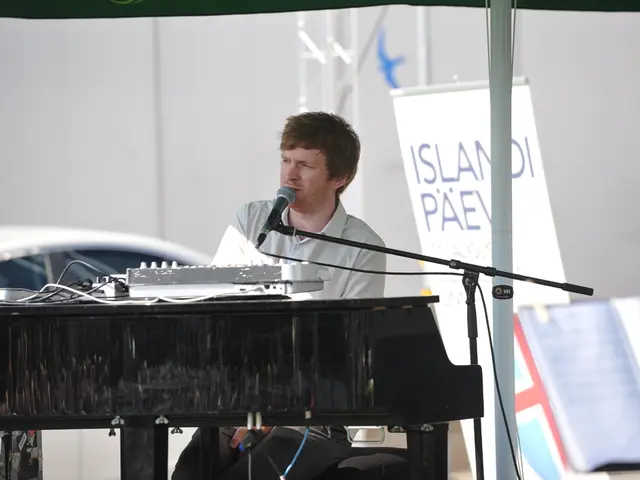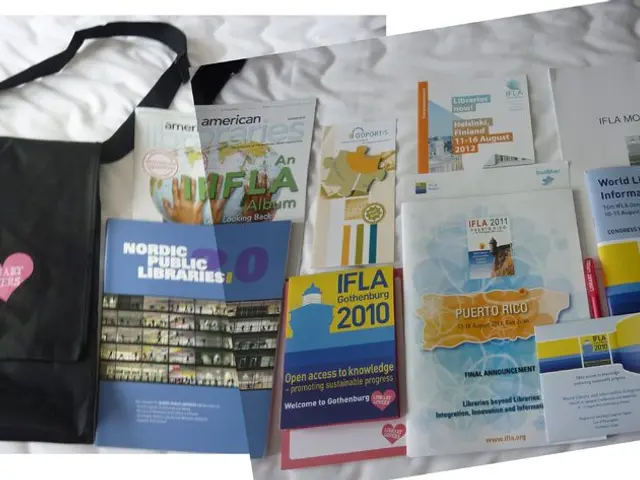Uncovered Agatha Christie Mystery Resurrected by Artificial Intelligence
Agatha Christie's Unfinished Tale Gets a New Life with AI Assistance
The BBC has embarked on an innovative endeavor, "Resurrecting a Classic Tale: AI Revives Lost Agatha Christie Manuscript," which involves utilizing artificial intelligence to complete one of the renowned mystery writer's unfinished works. The series, entitled "Murder in the Glass House," draws attention to the evolving role of AI in shaping the future of fiction, bringing into focus discussions about creative integrity, technological capabilities, and ethical boundaries.
Key Points
- The unfinished Agatha Christie manuscript was completed using AI trained on her literary works.
- The project sparks a renewed dialogue surrounding authorship, style replication, and ethical barriers in AI-authored fiction.
- Opinions among experts are divided on whether AI can effectively mirror Christie's distinctive literary voice.
- Historical precedents and public sentiment provide context to the expanding role of AI in entertainment and literature.
Introduction: A New Beginning for a Classic Tale
A hidden gem, an unfinished Agatha Christie manuscript, became an intriguing challenge for the BBC, propelling an exploration into the intersection of literary legacy and machine intelligence. Utilizing a custom-tuned language model trained exclusively on Christie's writings, the AI generated plot continuations, character dialogue, and scene transitions, all under the watchful eyes of human editors to maintain narrative consistency and tone.
The production team stated the purpose was to preserve Christie's signature style, not push innovation. It's estimated that nearly 80 percent of the final script was generated by AI before undergoing revisions by screenwriters and literary historians. The AI interface examined themes, pacing, plot devices, and dialogue styles found in Christie's detective fiction to craft a plausible continuation of her narrative arc.
The Role of AI in Completing the Manuscript
The technologically-inclined AI system behind this project appears to be a fine-tuned generative language model. The specific details of the model remain unknown, but insiders report it to be a derivative of a transformer-based one (similar to GPT-4), honed on over 2 million words from Agatha Christie's novels, short stories, and plays.
The AI's task was to generate script additions that remained faithful to Christie's writing style. Co-producer Eliza Morgan cited, "The AI didn't just complete Christie's sentences; it understood her rhythm, her twists, and even her subtleties. The machine synthesized the patterns drawn from her body of work to craft something that felt genuinely Christiean."
Ethics and Authenticity: What Defines an Author's Voice?
The effort to complete a deceased author's work using AI raises contentious questions about the definition of authorship, style ownership, and moral rights in the age of AI. Dr. Hayley Morrison, a professor of literary studies at Oxford University, commented, "Agatha Christie's voice isn't just syntax and structure. There's thematic weight, a cultural undertone, and historical perspective she embeds in every plot. Machines today still lack full cognitive depth to replicate that."
Acknowledging and respecting these aspects could shape the future of AI-assisted literature while maintaining factual and emotional accuracy.
Public Reactions and Expert Opinions
Audience responses have varied. According to early sentiment data, 54 percent of respondents found AI completing deceased authors' work ethically objectionable, while 31 percent showed interest in such projects if the author's estate approves. The remaining 15% were indifferent or unsure.
Historical Precedents in AI-Literary Collaboration
This is not the first time AI has been applied in the realm of literature. notable cases include William Shakespeare adaptations, Frank Herbert's Dune series, and AI-inspired Mary Shelley horror anthologies. The use of AI allows for data-driven approaches to interpreting authorial intent, sparking debates about its benefits and limitations.
The Future of Legacy Literature in the AI Age
The BBC's groundbreaking Agatha Christie project may mark the beginning of a wave of AI-assisted literature. Publishers, film studios, and literary estates continue to explore AI's potential in bringing unpublished works to light.
Creating ethical and editorial guidelines may be crucial in guiding AI's impact on legacy literature. Transparency, editorial certification, and estate oversight could ensure readers are always aware of AI's involvement and provide guiding principles for the new age of AI-authored fiction.
FAQs
- How was AI used to finish Agatha Christie's manuscript? A transformer-based language model customized for narrative prediction was fine-tuned on Christie's corpus. Human editors refined the script.
- Can AI accurately replicate an author's unique style? Partially. AI can mimic syntax, tone, and literary devices. However, experts argue AI still lacks emotional understanding and lived context.
- Is it ethical to use AI to complete an author's unfinished work? The debate continues. Some view it as a way to honor the author's legacy, while others see it as synthetic appropriation threatening the integrity of the original author's vision.
- What AI model was used in the BBC project? The model details have not been formally disclosed. It is believed to be a customized variant of GPT-4 trained on Christie's writings.
References
Brynjolfsson, Erik, and Andrew McAfee. The Second Machine Age: Work, Progress, and Prosperity in a Time of Brilliant Technologies. W. W. Norton & Company, 2016.
Marcus, Gary, and Ernest Davis. Rebooting AI: Building Artificial Intelligence We Can Trust. Vintage, 2019.
Russell, Stuart. Human Compatible: Artificial Intelligence and the Problem of Control. Viking, 2019.
Webb, Amy. The Big Nine: How the Tech Titans and Their Thinking Machines Could Warp Humanity. PublicAffairs, 2019.
Crevier, Daniel. AI: The Tumultuous History of the Search for Artificial Intelligence. Basic Books, 1993.
- Artificial intelligence has shown potential in completing an author's unfinished work, as demonstrated by the BBC's project "Resurrecting a Classic Tale: AI Revives Lost Agatha Christie Manuscript," thereby expanding the role of technology in both literature and entertainment.
- The implementation of AI in literature, particularly in reproducing the distinctive literary voice of an author like Agatha Christie, raises ethical questions about authorship, style ownership, and the boundaries between human creativity and artificial intelligence, prompting discussions among experts and the general public alike.







